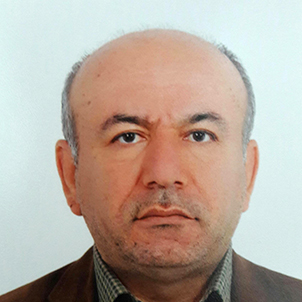The narrative analysis of the collective action of journalists; from the development of the press in Iran to the absence of the institutionalization of development
Author(s):
Article Type:
Research/Original Article (دارای رتبه معتبر)
Abstract:
“Collective action” is the capacity and communicative quality of those social actors that fulfill individual determinations through collective determinations building on the understanding and commitments related to the role. As such, they trigger the institutional change resulting in development through incentivizing the political will to accept the “public good.”Centered around the concept of “collective action,” the present study rejects the general arguments in the analysis of the lack of development of the press in Iran that aim at presenting top-down solutions. It contends that the absence of institutional agency via press syndicates, which can be made possible with the participation of all media practitioners, is the missing link of the underdevelopment of the press in Iran.This study covers the time period after June 1997 up to June 2022. The data required were gathered through the conduction of in-depth narrative interviews with journalists as well as building on textual sources and data available in written forms. For data analysis, the narrative analysis method has been used through a thematic model for thematization. Drawing on the mixed purposive sampling method, an effort has been made to ensure compatibility sampling to achieve representativeness.The results signify that in press syndicates, “antagonizing” connections with other power centers are replaced by relationships with the “co-workers” that often eliminate the possibility of a consensus for taking essential steps and furthering impactful collective action, or significantly minimize such possibilities.Also, the unsustainable development processes of the press, especially in associations and syndicates, lack the “effective connection of the constituents” that hamper the institution-building of the collective action. Identity-oriented and professional resources are not attached to material resources, and as such cannot result in “hegemonic actions” and the emergence of institutional agency required for solidifying the development discourses.
Keywords:
Language:
Persian
Published:
Journal of Political science Association, Volume:17 Issue: 4, 2022
Pages:
119 to 158
https://www.magiran.com/p2543654
سامانه نویسندگان
مقالات دیگری از این نویسنده (گان)
-
Exploring Youth Interpretations of the Mafia Game: An Ethnographic Study
Seyed Ghasem Hasani *, , Maryam Ghadimi
Journal of Applied Sociology the University of Isfahan, Spring 2025 -
A Sociological Study of Public Trust in Science and Technology: A Case Study of Tehran
Rita Rahmani, *, Heydar Janalizadeh Choobbasti, Akram Ghadimi
Journal of Sociology of Social Institutions, -
Validity and Reliability of the Physical Disability Stigma Questionnaire
V .Dastyar*, ME. Riahi, A. Erfani, M. Sharepour
Armaghane-danesh, -
Sociological Study of Obstacles and Limitations of Women's Presence in Socio-Cultural Spaces in Tehran
Malihe Amani, Mohammadesmaeil Riahi*
Journal of Socio -Cultural Development Studies, -
جامعه شناسی و وصال علم؛ تمنایی وامانده در کشاکش آراء
فصلنامه نقد کتاب علوم اجتماعی، پاییز و زمستان 1396 -
نظارت و جامعه در عصر تکنولوژی برتر
فصلنامه نقد کتاب علوم اجتماعی، تابستان 1396




